‘I Was Beyond Angry’: Michael Cohen Describes His Resentment of Trump as He Scrambled To Pay Stormy Daniels Before Election
Cohen also told the jury about his anger at being passed over for White House chief of staff.
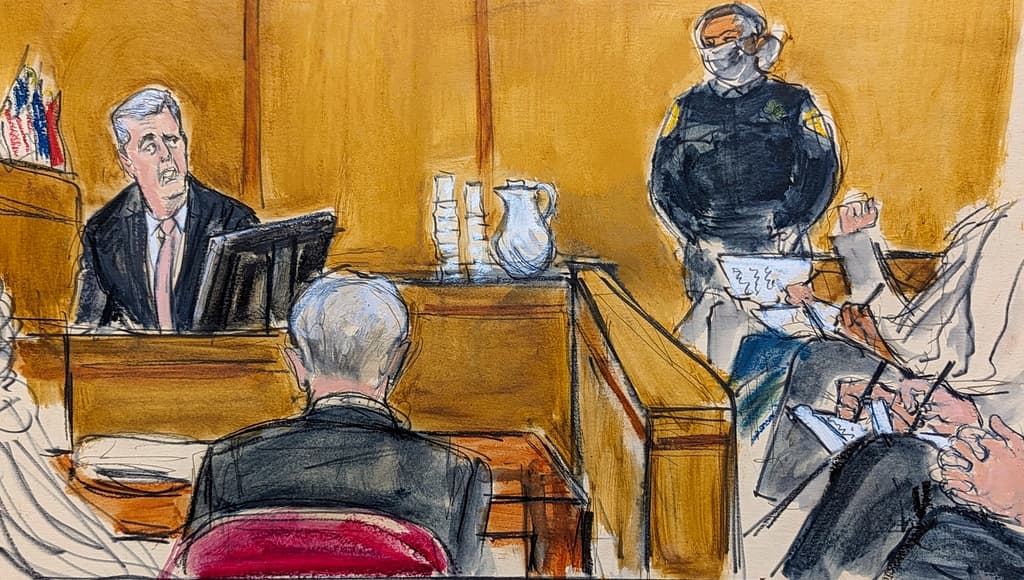
Michael Cohen, President Trump’s former personal lawyer and current nemesis, returns to the witness stand in the hush-money trial on Tuesday to finish his crucial testimony for the prosecution. Cohen, who lost his law license and, for a time, his freedom as a consequence of his work for Mr. Trump, will then face a highly anticipated (and likely very hostile) cross-examination by the defense.
“Everything required Mr. Trump’s sign-off,” Cohen told the jury on Monday. “On top of that, I wanted the money back.”
The hush-money case, brought against Mr. Trump by the Manhattan district attorney, Alvin Bragg, centers around a $130,000 payment Cohen made to the adult film star Stormy Daniels, shortly before the 2016 presidential election, to keep her from publicizing a 2006 sexual encounter she claims to have had with Mr. Trump, which he denies. The prosecution alleges that on the eve of the 2016 election, Mr. Trump directed Cohen to make the payment and then reimbursed him by fraudulently disguising the payment as a legal expense.
Cohen is not an easy witness for the prosecution. In August 2018, as President Trump’s enemies put him under increasing legal pressure, Cohen pleaded guilty to campaign-finance violations, tax fraud, and bank fraud related to his work for Mr. Trump. Three months later, he pleaded guilty to lying to U.S. congressional committees who were investigating Mr. Trump. He was sentenced to three years in federal prison, most of which he served in home confinement on Manhattan’s Upper East Side.
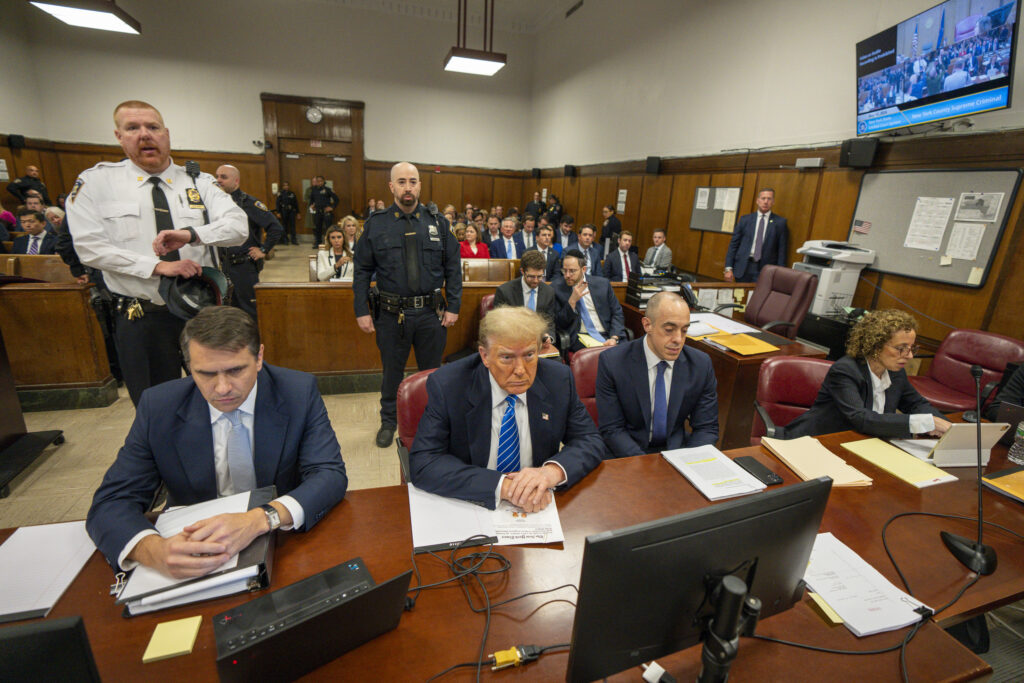
In the recent civil fraud trial, brought by New York’s attorney general, Letitia James, Cohen testified that he had not evaded his taxes and that when he said he did, he had lied under oath to a federal judge.
To make a witness with a reputation of being a chronic liar sound credible, the prosecution tried to back Cohen’s testimony with documents or previous statements from other witnesses.
Keith Davidson, the attorney who brokered the hush-money deal for Ms. Daniels, whose real name is Stephanie Clifford, testified last week, telling the jury that Cohen kept delaying the payment for the non-disclosure agreement. Cohen’s Monday testimony corroborated that. He said that after Mr. Davidson didn’t receive the money, he threatened to sell Ms. Clifford’s story to the Daily Mail.
“We were losing control over the settlement,” Cohen testified, “as a direct result of my failure to wire funds.” The possibility that Ms. Clifford’s story of sex with Mr. Trump could be published in the Daily Mail two weeks before the 2016 presidential election was “incredibly stressful,” Cohen said.
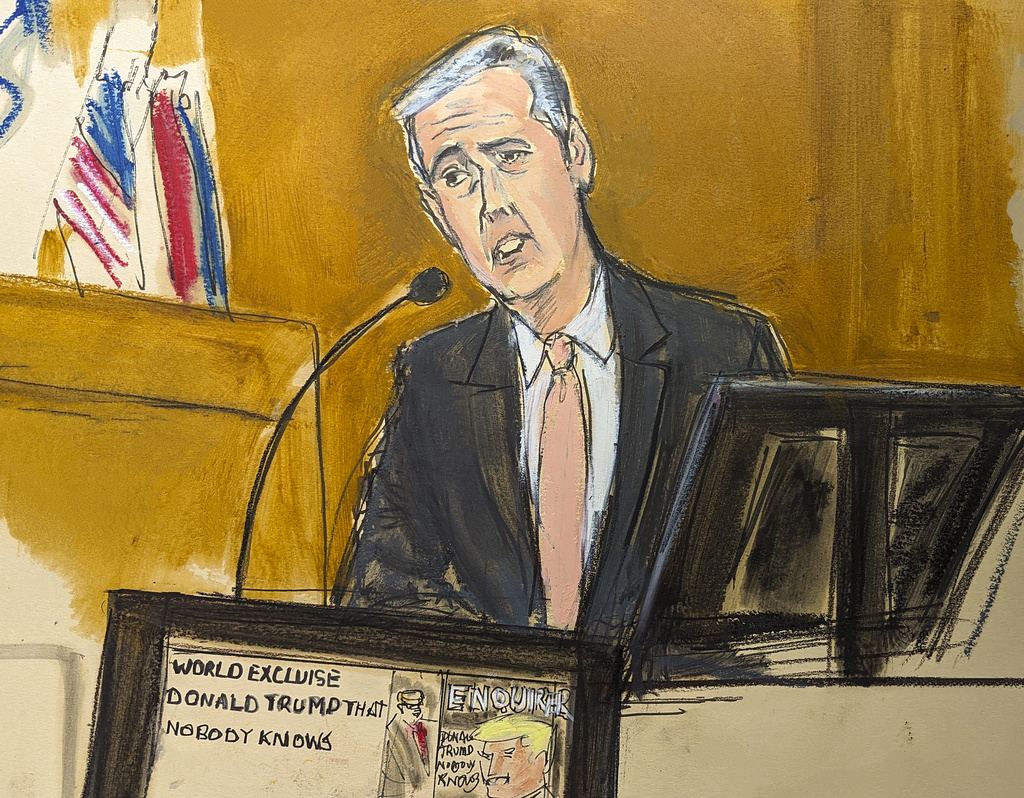
“If this matter wasn’t resolved it was going to be catastrophic to Mr. Trump and the campaign,” Cohen said.
Under intense time pressure, Cohen discussed the issue with Allen Weisselberg, the Trump Organization’s long-time chief financial officer who is now incarcerated on Rikers Island. He testified that he asked Weisselberg if he could pay Ms. Clifford out of his own pockets. But according to Cohen, Weisselberg was paying private school tuition and summer camp fees for his four grandchildren, and did not have the funds.
(The school tuition of Weisselberg’s grandchildren, to the Columbia Grammar & Preparatory School on Manhattan’s Upper West Side, was actually being paid for by the Trump Organization. Weisselberg, who refused to turn state’s evidence and betray his longtime boss, would be sentenced to prison for not paying taxes on the tuition gifts among other offenses.)
Cohen further testified that Mr. Trump told him he “had spoken to some friends, some individuals, very smart people. It’s $130,000. Just pay it. There’s no reason to keep this thing out there. Just do it. So he expressed to me, ‘Just do it,'” Cohen said, and so he decided to pay the money out of his own pocket.
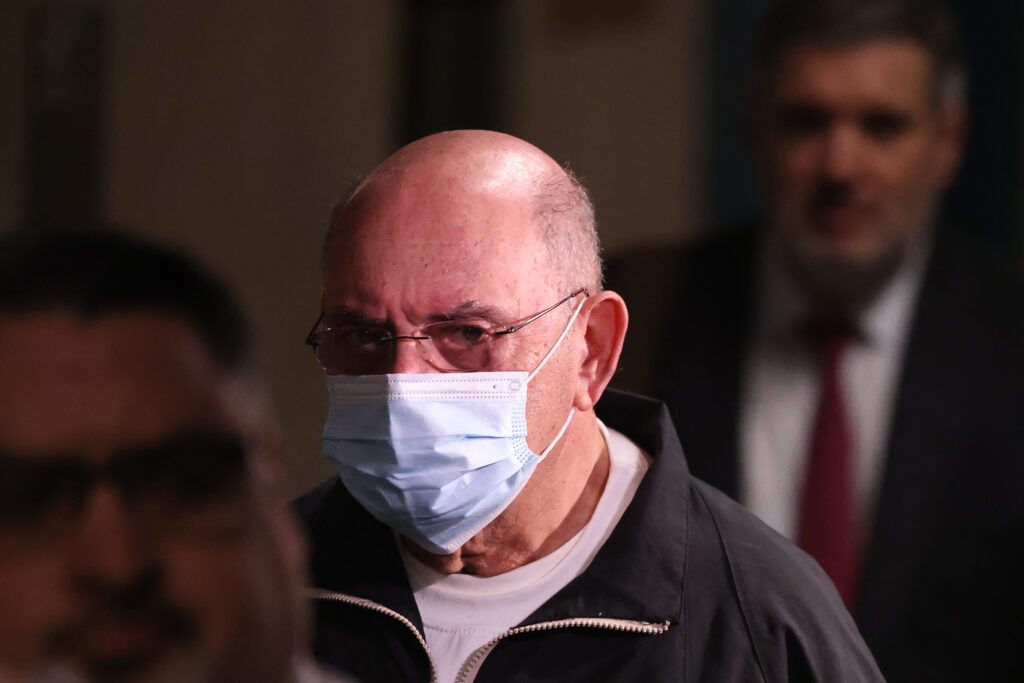
“I elected to use money that was in the HELOC because my wife, who was CEO of the household, would not understand if there was $130,000 missing from our joint bank account,” Cohen explained to the jury about his decision to draw on a home equity line of credit.
The prosecution presented various phone records of calls Cohen made in late October 2016 to Mr. Davidson, to Weisselberg, and to David Pecker, the then-publisher of the National Enquirer, whose editor had made the contact with Mr. Davidson regarding Ms. Clifford.
Further phone records showed two phone calls Cohen made to Mr. Trump on Oct. 26, 2016, the first call lasting 3:01 minutes and the second lasting 1:28 minutes.
“I wanted to ensure that once again he approved what he was doing, because I required approval from him on all of this,” Cohen said.
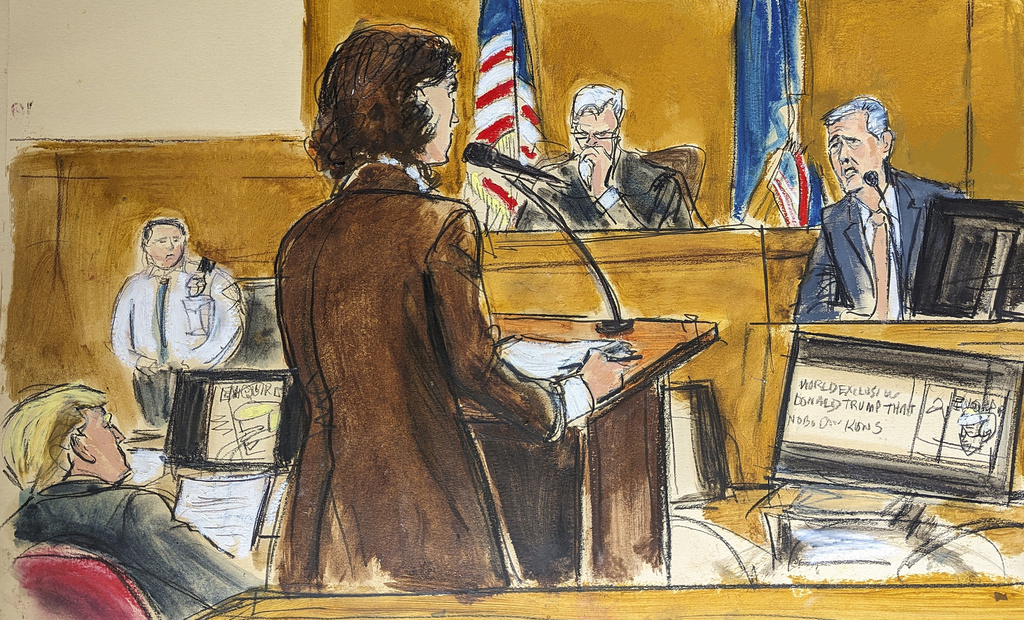
The payment was wired to Mr. Davidson on October 27, 2016. The jury had already been shown the documents verifying this information when the banker, who authorized the wire, testified last week. Now they saw yet another phone record of a five-minute phone call between Cohen and Mr. Trump on Oct. 28, 2016.
Cohen testified he told Mr. Trump that “this matter was now completely under control and locked down pursuant to the nondisclosure agreement.”
After Mr. Trump won the presidency, Cohen testified that his “service was no longer necessary.” Mr. Trump did not offer him a prime position in the new administration. Instead Reince Preibus, whom Mr. Trump had tapped as his chief of staff, offered Cohen a role as an “assistant general counsel.” Cohen testified he turned the offer down because he was disappointed that he had not been selected for chief of staff.
“It was more about my ego than anything,” Cohen told the jury, adding that he didn’t believe he was “even competent to be chief of staff,” but that he wanted his “name to be included,” that he “would have liked to have been considered.”
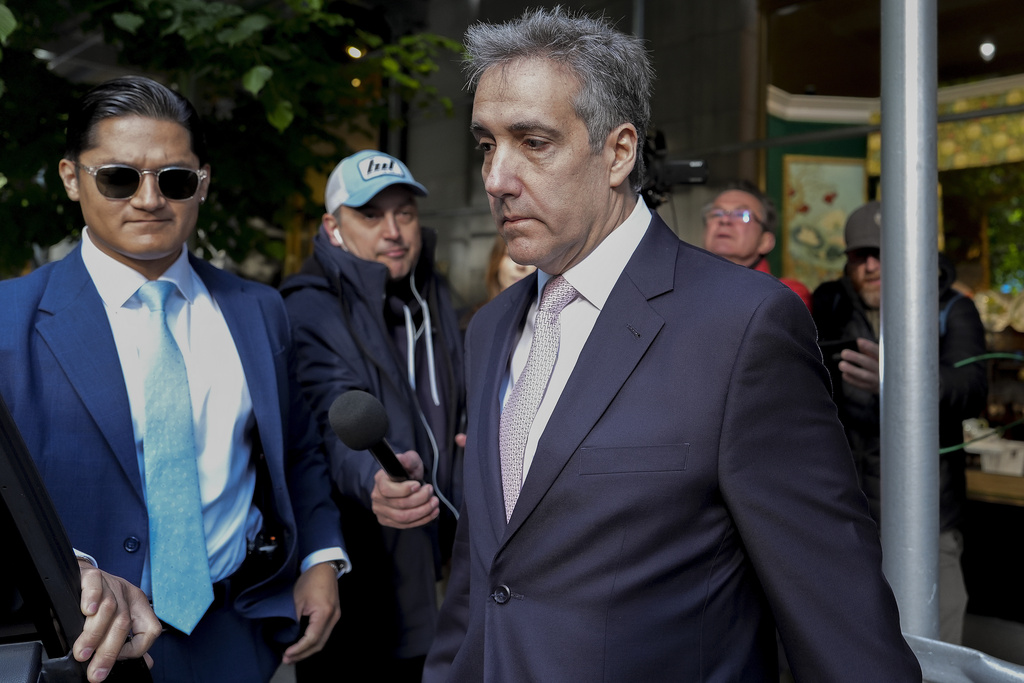
Then Cohen explained that he suggested working as a “personal attorney to the president,” since there were “outstanding matters” to be handled.
“I also had another thought in mind, which was consulting. That’s what I really wanted because that afforded me the time to stay at home, in New York,” he testified.
Cohen’s infatuation with Mr. Trump was evident throughout his entire testimony. Cohen said, “Mr. Trump was an enigma” but having worked with him so closely for so long, he understood his boss. “Because of my close proximity to him for a decade, I did understand.”
In December 2016, Cohen’s bonus was reduced by two-thirds, leaving Cohen “beyond angry.”
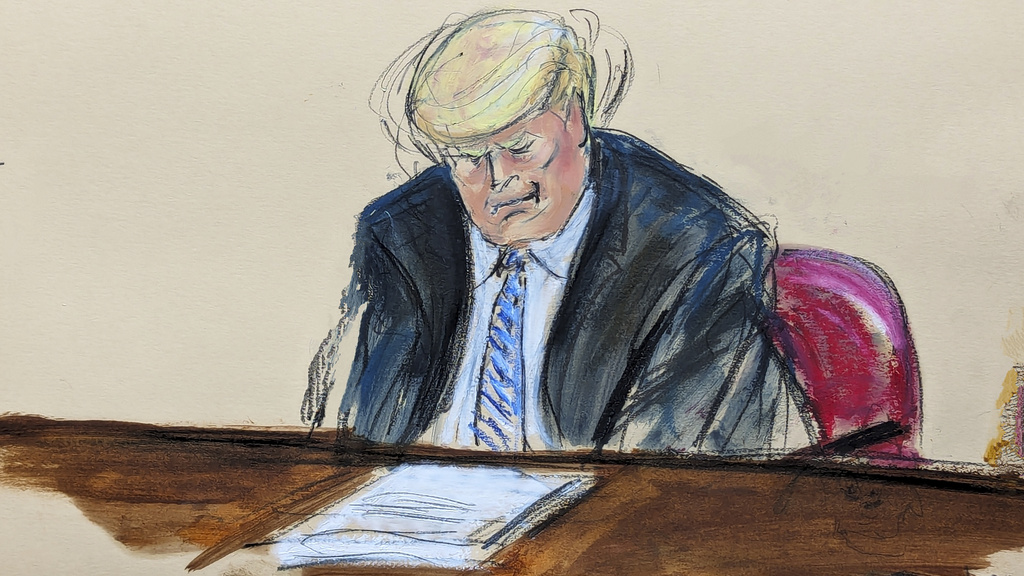
“I was truly insulted, personally hurt. Didn’t understand it,” Cohen testified. “It made no sense, after all that I had gone through in terms of the campaign as well as things at the Trump Organization, and laying out $130,000 on his behalf to protect him.”
Cohen raised the issue with Weisselberg, who according to Cohen, told him, “We’ll make this right.” He had also not been reimbursed for the hush-money payment, and Weisselberg, he said, asked him to come into office and bring the wire statement.
The prosecution then showed jurors the same statement they had been shown when the Trump Organization’s former controller, Jeffrey McConney, testified. Handwritten notes on the statement detail the reimbursement. Cohen explained that his handwriting was on the right side of the document, while Weisselberg’s writing was on the left.
“The $130,000 was obviously the money that went for the nondisclosure agreement,” Cohen testified, as he explained the mathematical equation the jury was looking at.
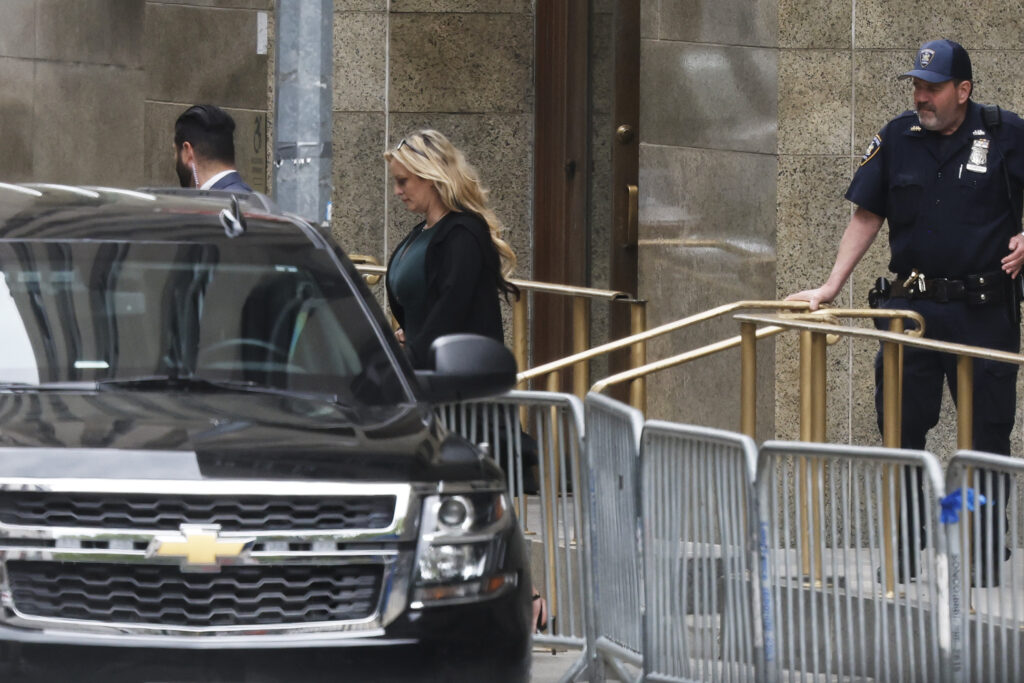
Cohen said that Weisselberg told him to double the amount so he would get his full reimbursement after taxes. According to Cohen, this was a common practice at the Trump Organization.
Cohen testified that he added another $50,000 to the full amount, for “tech services” provided by a company called Red Finch, though he admitted to the jury that the amount he told Weisselberg was higher than the actual expense.
“I didn’t feel that Mr. Trump [was] owed the benefit of the difference,” Cohen testified, adding that he kept the difference for himself.
The New York Times reported that Cohen explains this specific tech service in his book “Disloyal.” He hired a computer programmer, who according to the New York Times, bought “IP addresses in order to rig an online CNBC poll to make sure Trump ranked among the most influential business leaders alive.”
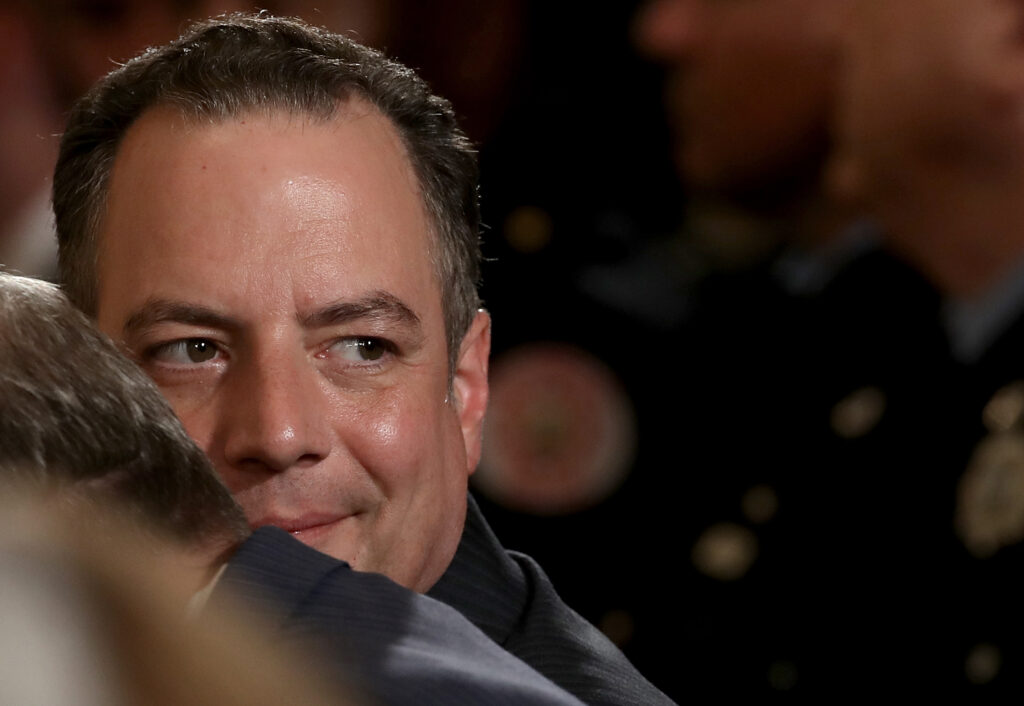
After Weisselberg added Cohen’s bonus, the total amount came to $420,000. According to Cohen, the two men went to Mr. Trump’s office to get his approval. It was Mr. Trump, Cohen testified, who said he would pay him in monthly installments.
With a hint of jealousy, Cohen described Weisselberg and Mr. Trump as being close like “Frick and Frack,” the Swiss skaters from the 1930s. He assumed they had previously discussed the payment. In Mr. Trump’s office, Weisselberg explained to Cohen, according to his testimony, that these monthly payments would be booked as “a legal service” since Cohen was “to be given the title as personal attorney to the president.”
When asked if these monthly payments would be compensation for future legal services by Cohen for Mr. Trump, Cohen said, “No.” Although the invoices, which the jury saw last week, stated that the payments were rendered for legal services, according to Cohen, he provided none.
Prosecutors told the presiding judge, Juan Merchan, they had a few more questions for the witness, but it’s expected that they will finish early enough to give the defense its turn to begin cross-examining Cohen on Tuesday.
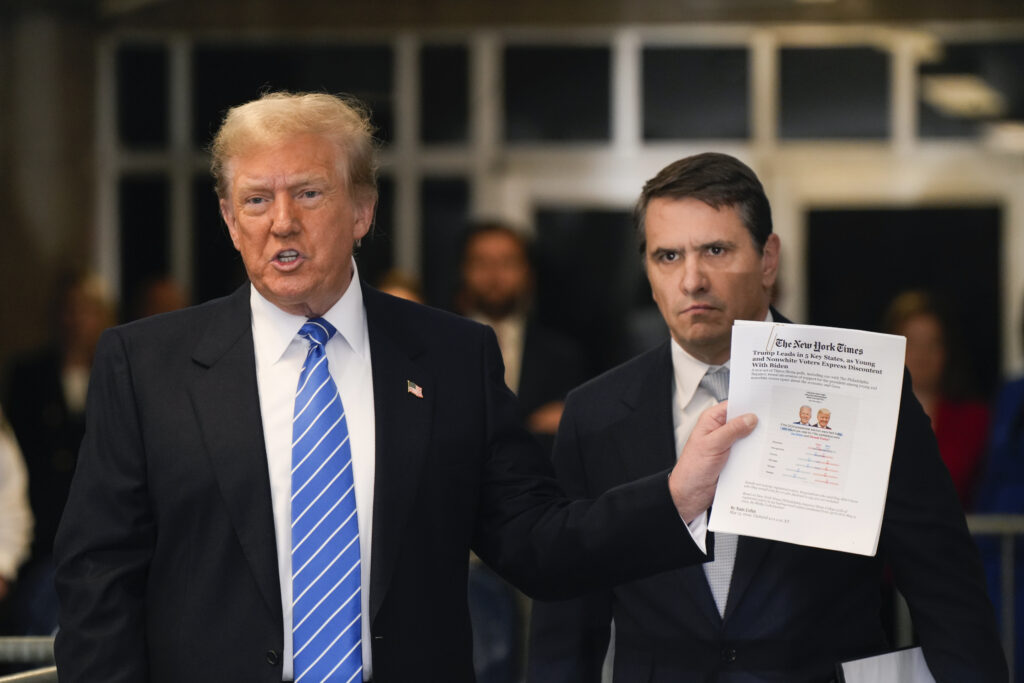
Mr. Trump’s attorneys can then dig into Cohen’s previous lies and challenge his credibility.
After the proceeding, Mr. Trump told reporters that this trial “could have been brought six years ago, seven years ago, almost eight years ago. They bring it right in the middle of my presidential campaign.”
“They’ve kept me here for three and a half, four weeks, instead of campaigning. Yet we still have the best poll numbers,” Mr. Trump added. He’d walked into court that morning holding a printout of a New York Times article about new polls showing him leading in key swing states.

